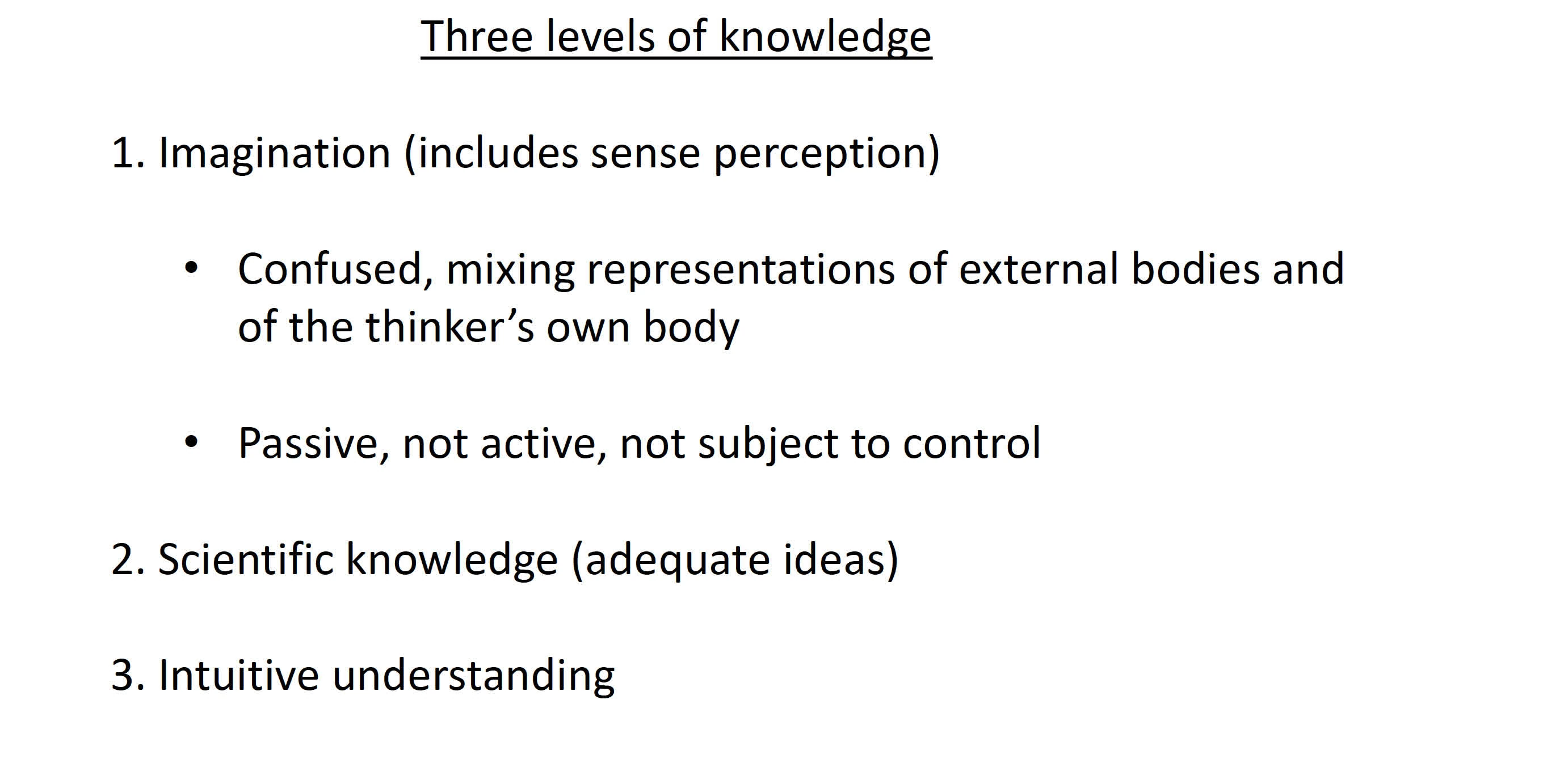Notes: notes
Reference: text
Socrates’s Idea of Good
- Something is good when it contributes to the flourish of human being
- Deny democracy
- the masses are childish
- unnatural, confuses freedom with lack of restraint
- inefficient
- bad at financial management
In Phaedo: The body confuses the soul and does not allow it to acquire truth and wisdom
See Apology for more information
Arguments for Survival
Idea of all things come into being from their opposite → The have come from the death a soul must exist despite being dead
- Understanding of perfection is independent of experience
- To have knowledge independently of experience → soul must have exists b4 body
- Yes, soul will survive death, because soul that exists before birth must come from something dead
- does not requires a living body to be a living soul
Against soul scattering
- can dissolve and scatter must be composite
- composite changes, simple doesn’t
- Idea are simple
- Understanding ideas is a pure power of mind
- ideas are simple → soul understand them are also simple
- Soul does not consist of parts → cannot change
- Soul brings life to a body → death changes the body, but the souls live on.
- Idea of the Even cannot become odd, Hot cannot become cold, soul, makes a body alive cannot die.
See Republic
- Belief is liable to error, knowledge is not.
- Belief can be changed by persuasion, knowledge cannot be.
- Belief does not bring understanding, knowledge does.
- True belief, right opinion, is still essentially belief or opinion, and cannot be knowledge since its truth is accidental.
- Opinion is shameful because it is not a passive thing that innocently occurs to a person.
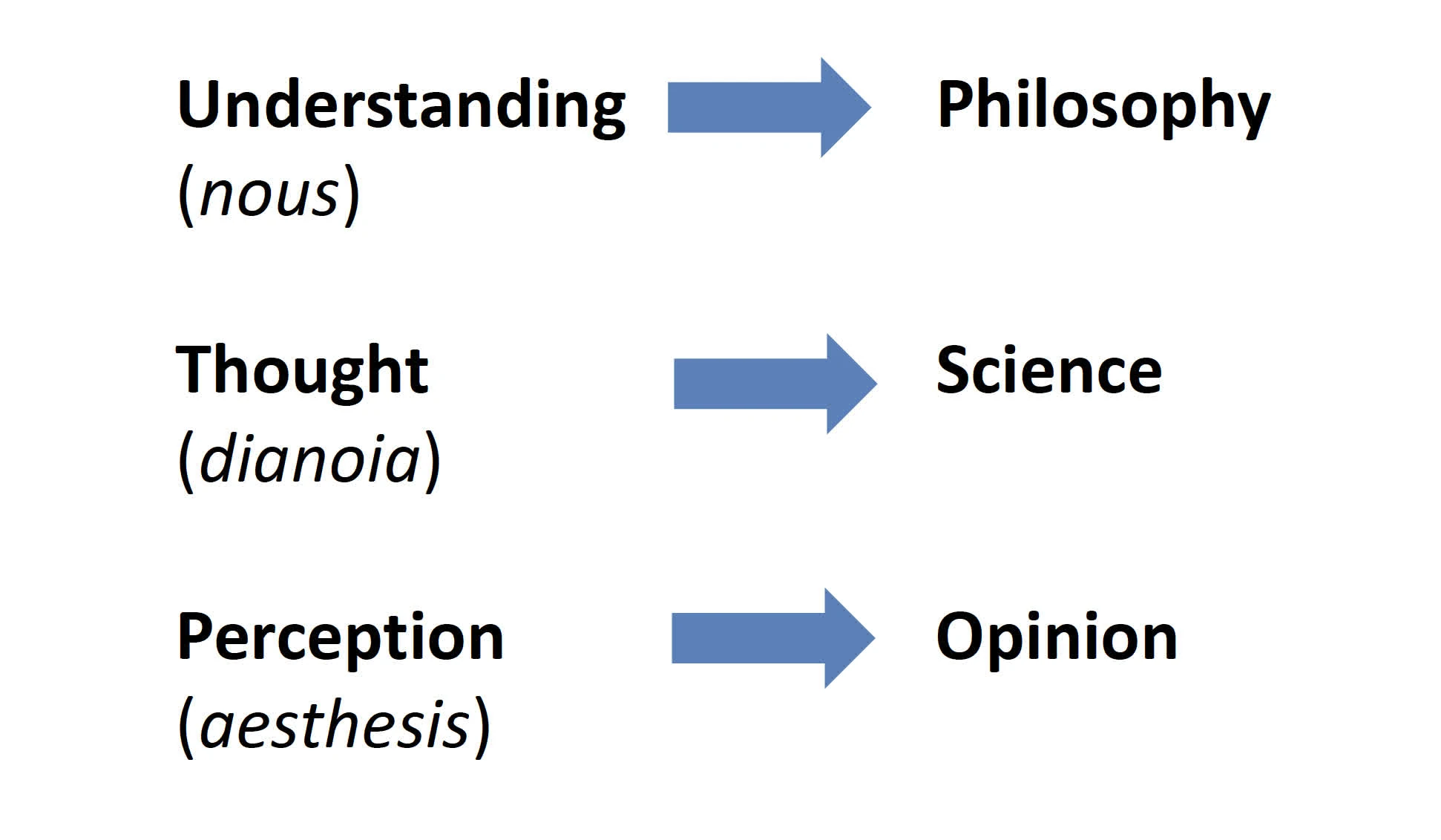
Allegory of the Cave
Plato’s pessimism We are sunk in error, addicted to opinion, and democracy is hopeless. It is the political expression of minds ruled by opinion, bereft of wise knowledge.
Plato’s optimism The cosmos is organized by goodness. By gasping that we understand the world we live in, and by understanding that we understand how best to live.
And we can understand that, the idea of the good. At least some of us can. They are the philosophers, masters of the dialectic, and they should govern the rest.
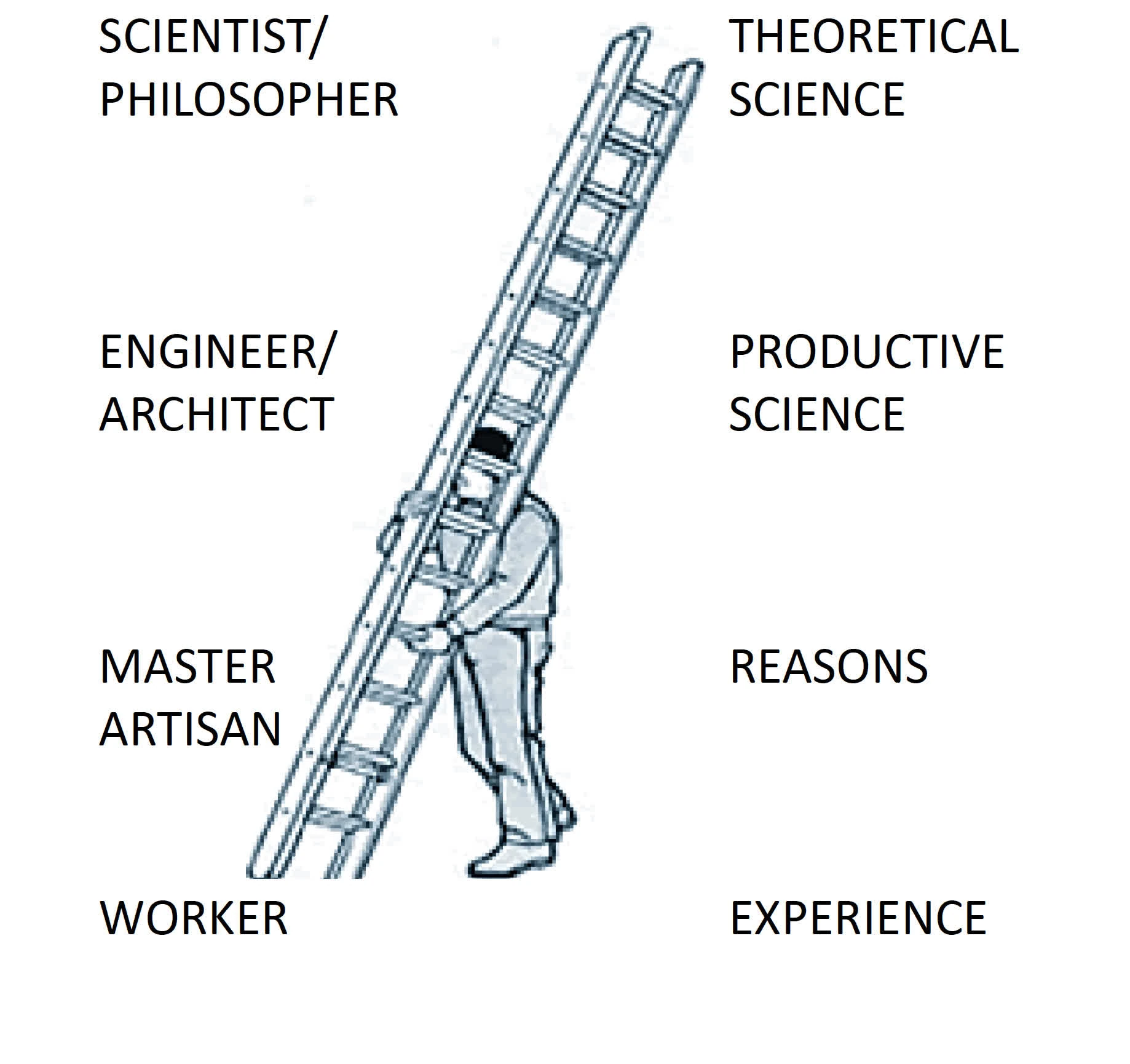
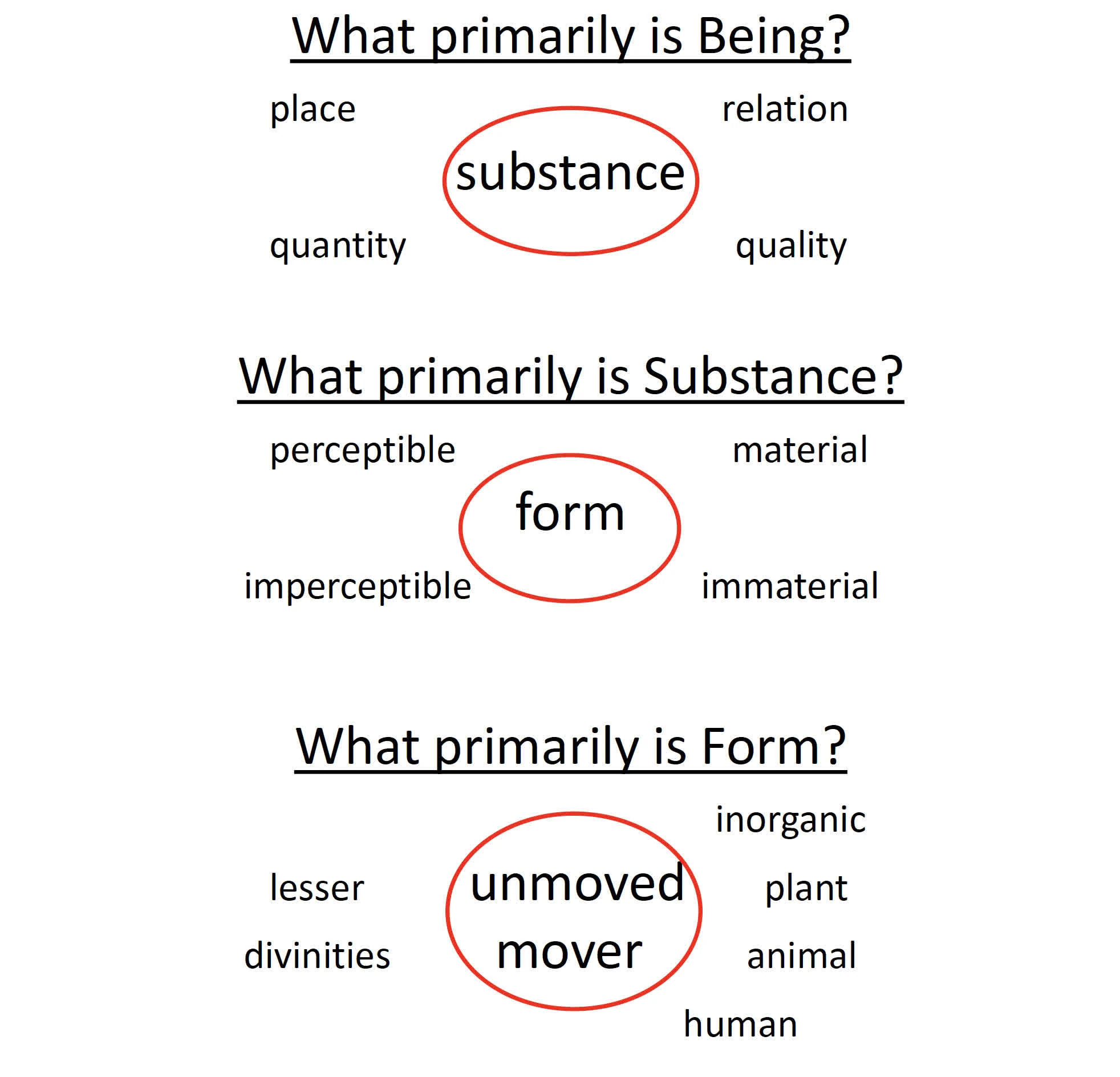
What is Truth?
“To say of what is that it is, and of what is not that it is not, is true.”
correspondence theory of truth
Truth is the correspondence of substance and statement
Theory of Causes
- Formal cause: law of change
- Material cause: material persisting through change
- Efficient cause: agent of change
- Final cause (teleological cause, telos): purpose of change
- God doesn’t concern human affair
- nothing to fear
Happiness is uninterrupted tranquility. If intervene, from some disturbance of tranquility existence of evils proves indifference to gods.
Atomism
Doesn’t against the Soul, only against its immateriality
Cynic principles
Materialism without atomism
Matter is continuous and without void. No empty space.
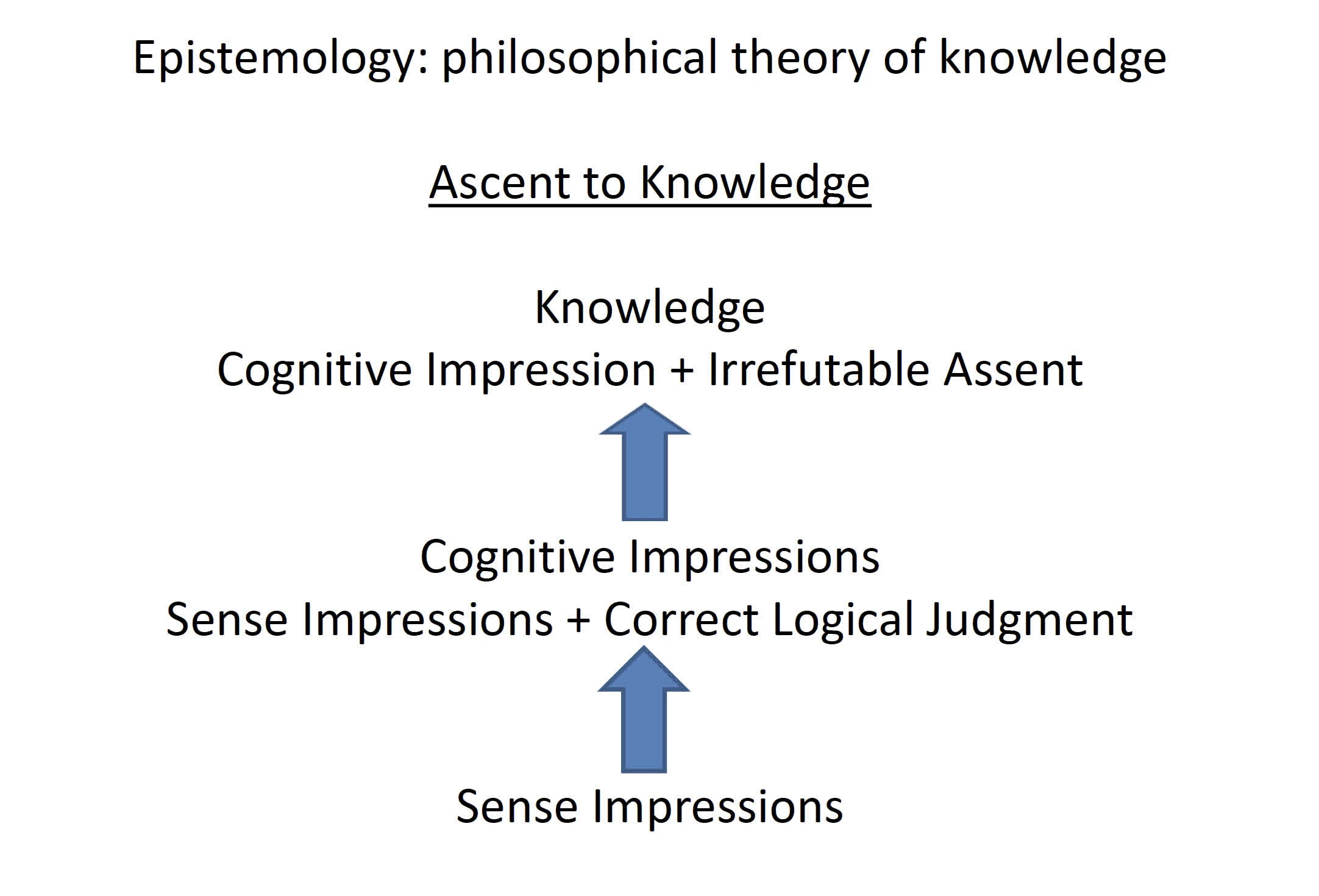
Free will and determinism
Epictetus: “If a good man could foresee the future, he would cooperate with sickness, death, and mutilation; for he would be aware that this had been ordained by the universal order of things, and that the whole is more important than the parts.”
All causes are either:
- Antecedent causes: events leading up to a change.
- Active, operating causes: immediately produce the effect.
Moral
The highest good (= virtue) is right volition. Every act is chosen, voluntary. No moral luck. Whether life goes well or ill is completely in our control. Suffering is a kind of error, a cognitive mistake, due to wrong judgment and false belief.
Muller-Lyer Illusion
The idea of god is a perfect being
I think, therefore, I exists
Thinking implies existence provides a test for truth, and cognito
Descartes equates material substance (matter, body) with spatial extension.
The essence of body, what makes a body corporeal or material, is spatial extension.
Impliciations
-
primary and secondary qualities
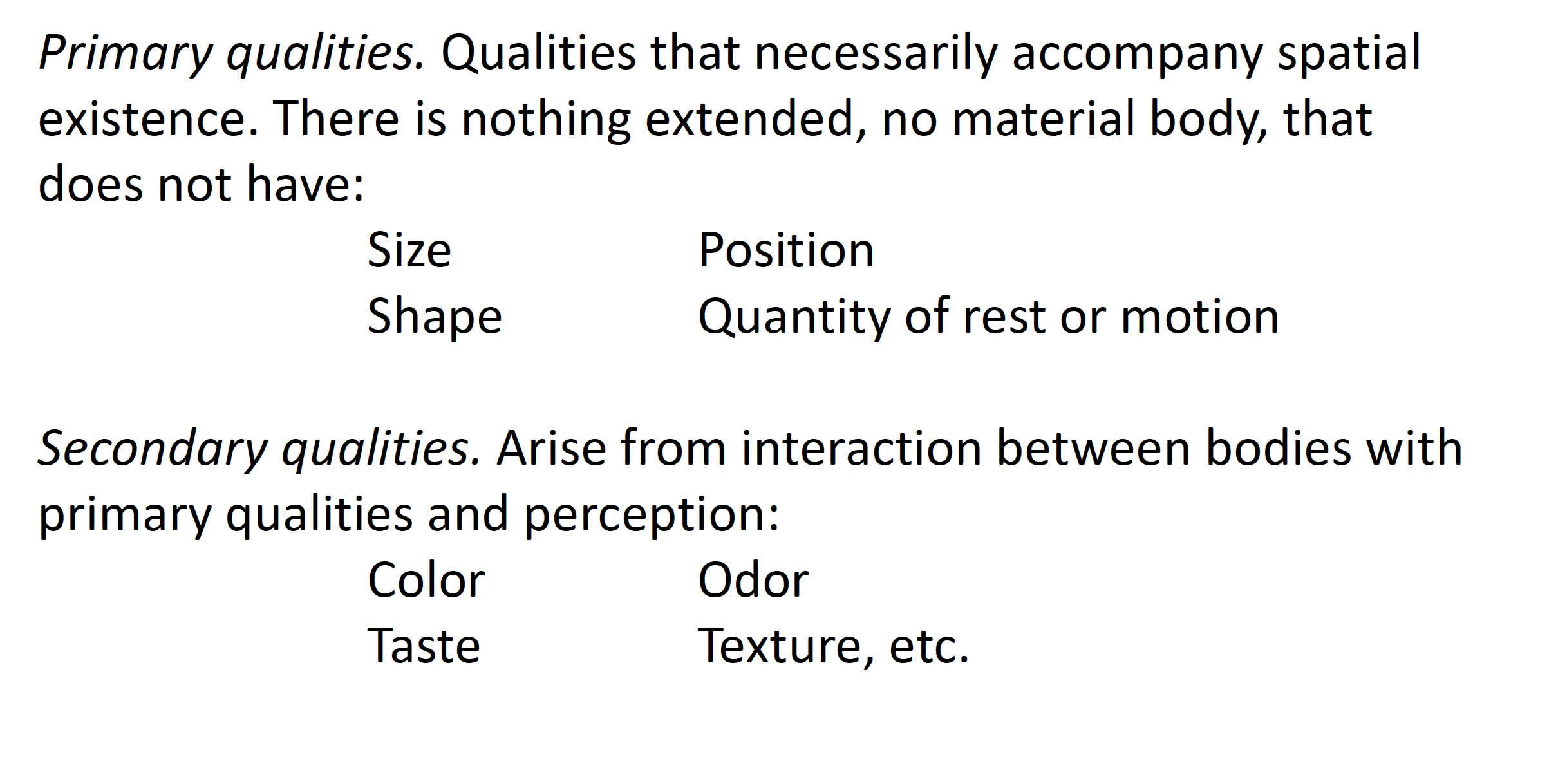
-
Plenum
space is identical with matter, then the idea of “empty space” becomes impossible. The physical universe is therefore “filled up,” a plenum, with no empty space.
-
Inertness
- Spatial extension is the whole essence of matter.
- No other quality, except those primary qualities that necessarily accompany extension
- Motion is not essential to a body. If a body moves, motion was transmitted to it from another moving body.
- Mind-body problem
- Mental perceptions vs. Physical causation
Deus sive Nature
Descartes: Mind and body are separate substances. A person is a substantial union of thinking substance and extended substance.
Spinoza: A human being cannot be a substance.
- Substance cannot not exist; it is a necessary, self-caused, causa sui being.
- No human being is a necessary, self-caused being.
- Therefore no human being is a substance. Even less can a human being be what Descartes said—a composite of two substances.
